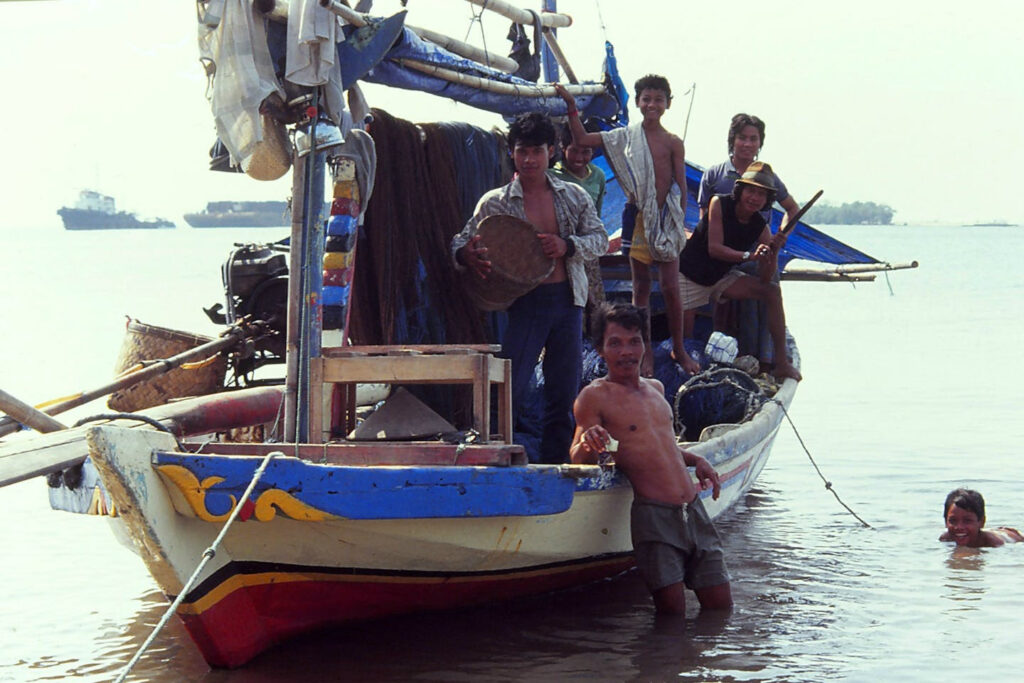Covid-19 sent shockwaves through economies worldwide, causing severe disruptions and exposing the fragility of growth-oriented models. The pandemic’s impact has forced governments, policymakers, and economists to re-evaluate the traditional approach of focusing solely on economic expansion and imagine alternative economic models.
For Indonesia, this opportunity to reimagine the post-Covid economy is centred around implementing a blue economy.
A blue economy aims to reset inclusive and long-lasting economic growth by harnessing sustainable marine resources. Growth is achieved through economic interventions that support development while preserving and protecting marine resources.
Indonesia has more than 17,500 islands, 108,000 kilometres of coastline, and three-quarters of its territory at sea. Oceans are central to Indonesia’s prosperity through economic activities such as capture fisheries, aquaculture, coastal tourism, marine construction and transportation.
Indonesia has the world’s second largest fishery sector, worth around US$27 billion and providing seven million jobs and over 50 per cent of the country’s animal-based protein needs. Oceans are a key asset for the country’s tourism industry, which was worth around US$21 billion to gross domestic product (GDP) in 2019.
Indonesia’s unique reliance on the ocean for its economic and cultural development has led its government to adopt the recommendations of the United Nations Environment Programme to promote a low-carbon economy.
This agreement involves adopting policies and implementing initiatives supportive of a low-carbon economy, prioritising clean water access, mitigating climate change, protecting marine resources, and preserving terrestrial ecosystems.
These goals reflect Indonesia’s commitment to sustainable development and its recognition of the interconnectedness between economic growth, social wellbeing and environmental protection.
Indonesia’s commitment to incorporating blue economy principles into their policies is not new. During a June 2012 UN conference, the administration of then-Indonesian President Susilo Bambang Yudhoyono voiced their commitment to implementing a blue economy.
His successor, President Joko Widodo, has established a blueprint known as Nawacita, which outlined the government’s vision and priorities. The commitment to implementing a blue economy was a key aspect of Nawacita, highlighting the administration’s determination to prioritise sustainable practices, including the responsible use of marine resources.
In June 2021, Indonesia committed to the Initiative Natural Capital Carbon Communities Super Power at the Tri Hita Karana Climate Forum. This initiative emphasises the importance of natural capital, including marine resources, in mitigating climate change and promoting sustainable development.
By recognising the significance of natural capital, Indonesia aims to position itself as a leading force in addressing climate change and fostering sustainable communities.
The opportunity to pursue a blue economy in Indonesia is strong and potentially lucrative. The World Bank estimates the value of Indonesia’s blue economy at USD$1.338 billion, which includes opportunities for revenue through coastal culture, capture fishery, treasure-laden shipwrecks, marine tourism, coral reefs, seagrass and mangroves.
There are challenges implementing blue economy principles in Indonesia. Coastal areas are facing population growth, which will lead to more demand for land in limited space, leading to internal migration and environmental strain. Tidal flooding due to land subsidence poses a significant threat to coastal urban areas, damaging infrastructure and affecting communities, households and individuals.
Indonesia produces the second largest volume of marine debris after China; it is vulnerable to oil spills and marine fisheries are unsustainably exploited. Ninety per cent of Indonesian boats draw their catch from areas that are already overfished and overcapacity.
Traditional communities in Indonesia, whose lives have long revolved around the sea, face challenges to their way of life due to rising populations, coral reef destruction and the abandonment of traditional fishing practices.
With many significant challenges, Indonesia needs to carefully pick its battles, considering its limited resources.
The Indonesian government still heavily relies on revenue from the mining and fossil energy sectors. The objectives of promoting a low-carbon economy cannot be achieved if the government continues to depend on these sectors.
To meet its commitment to transition to a blue economy, Indonesia must diversify its economy, reduce reliance on extractive industries, transition to renewable energy sources and promote sustainable practices. This shift would align with the principles of a blue economy and contribute to mitigating climate change, ensuring a more sustainable future.
To finance this shift towards a blue economy, Indonesia could consider investing a minimum of 10 per cent of its marine economic output in managing ocean governance and health. Seeking funding from developed countries through debt conversion or debt-for-nature swaps could be explored.
Environmental fiscal reforms can be implemented, including incentives and disincentives such as taxation, fees, pricing mechanisms and phasing out harmful subsidies. In addition, private investors and capital markets could be encouraged to scale up investments in blue economy practices and principles through mechanisms such as green banking.
Encouraging insurance companies to design new products that proactively support sustainable marine sectors is also important. Promoting public-private partnerships for research and development of financial solutions for the ocean and investable marine pathways can be beneficial. Providing concessional, catalytic and patient capital for the transition to a blue economy is essential.
By implementing these financing strategies, Indonesia can mobilise the necessary resources to support the implementation of a blue economy. Collaboration among various stakeholders, including government, private sector, and international institutions, is crucial to ensure effective financing mechanisms and the sustainable development of a blue economy.
Zuzy Anna is a professor at the Faculty of Fisheries and Marine Science, Universitas Padjadjaran. She serves as the Head of Fisheries and Marine Socio Economics Department at Universitas Padjadjaran and is Director of the SDGs Center. Her research interests include resources and environmental economics, marine and fisheries economics and Sustainable Development Goals. Anna declares she has no conflict of interest.
Source : EcoBusiness


